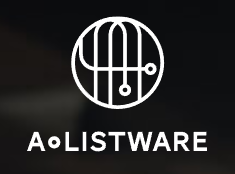Python היא שפת תכנות רב-תכליתית, אידיאלית לבניית יישומים אינטרנטיים וניידים. בין אם אתם מפתחים מתחילים או מנוסים, הפשטות והכלים החזקים של Python הופכים את פיתוח האפליקציות לקל ומהיר יותר. במדריך זה נלווה אתכם לאורך השלבים החיוניים ליצירת אפליקציה באמצעות Python, מהגדרת סביבת הפיתוח ועד לבחירת המסגרות המתאימות ופריסת המוצר המוגמר.

מה זה פייתון?
Python היא שפת תכנות ברמה גבוהה, המתורגמת בזמן ריצה, המדגישה קריאות ופשטות. Python, שתוכננה על ידי Guido van Rossum ושוחררה בשנת 1991, מאפשרת למפתחים לכתוב קוד נקי והגיוני, מה שהופך אותה לבחירה מצוינת הן למתחילים והן למתכנתים מנוסים. עם תחביר פשוט, Python מאפשרת לך להתמקד בפתרון בעיות במקום להיתקע במבני תכנות מסובכים.
אחת התכונות החזקות ביותר של Python היא הרב-תכליתיות שלה. זו לא רק שפה לשימוש כללי, אלא גם תומכת בפרדיגמות תכנות מרובות, כולל תכנות מונחה עצמים, פרוצדורלי ופונקציונלי. הקהילה הגדולה של Python מפתחת באופן רציף מסגרות וכלים חדשים, מה שמקל על מפתחים לבנות יישומים מדרגיים וחזקים.
מדוע לבחור ב-Python לפיתוח אפליקציות?
לפני שנצלול לפרטים, חשוב להבין מדוע Python היא בחירה כה פופולרית לפיתוח אפליקציות. להלן כמה סיבות עיקריות:
- פשטות: תחביר Python קל ללמידה ושימוש. השפה תוכננה להיות ברורה ותמציתית, ומאפשרת למפתחים לכתוב קוד במהירות וביעילות רבה יותר.
- ספריות נרחבות: Python מגיע עם מערכת אקולוגית עשירה של ספריות ומסגרות, המאיצות משמעותית את הפיתוח.
- תאימות בין פלטפורמות: אחד היתרונות הגדולים ביותר של Python הוא היכולת שלו לפעול על פלטפורמות מרובות, כולל Windows, macOS ו-Linux.
- תמיכה קהילתית: ל-Python יש קהילה עולמית ענקית שתורמת באופן פעיל לפיתוח ספריות ומסגרות קוד פתוח.
- רב-תכליתיות: Python משמש למגוון רחב של יישומים, מפיתוח אתרים ואוטומציה ועד ניתוח נתונים ולמידת מכונה.
הגמישות, הפשטות ומגוון הספריות הרחב של Python הופכים אותה לשפה אידיאלית לבניית כל דבר, החל מיישומים פשוטים ועד תוכנות מורכבות ברמה ארגונית.
5 אפליקציות מפורסמות שנוצרו באמצעות Python
הגמישות והיעילות של Python הפכו אותה לבסיס עבור כמה מהיישומים הפופולריים ביותר בעולם כיום. להלן חמש אפליקציות ידועות שנבנו באמצעות Python.
1. אינסטגרם
Instagram, אחת מפלטפורמות המדיה החברתית הגדולות בעולם, משתמשת ב-Python לטיפול בחלק גדול מפיתוח ה-backend שלה. בתחילה, Instagram החלה להשתמש ב-Django, מסגרת אינטרנט של Python, כדי לבנות את הפלטפורמה שלה במהירות וביעילות. Python איפשרה ל-Instagram להתרחב ביעילות עם הגידול המהיר בבסיס המשתמשים שלה.
2. Spotify
Spotify, שירות הזרמת המוזיקה המפורסם בעולם, משתמש ב-Python בתחומים שונים בפלטפורמה שלו, במיוחד לניתוח נתונים ופיתוח backend. היכולת של Python לטפל במאגרי נתונים גדולים ולבצע חישובים מורכבים מאפשרת ל-Spotify להמליץ על מוזיקה, ליצור רשימות השמעה ולנתח דפוסי האזנה ביעילות.
3. Dropbox
Dropbox, שירות האחסון בענן הפופולרי, מסתמך רבות על Python להפעלת היישום שלו. בתחילה, Dropbox השתמש ב-Python עבור הלקוח השולחני שלו, מה שאפשר ליישום לפעול בצורה חלקה במערכות הפעלה שונות כמו Windows, macOS ו-Linux. הפשטות של Python ותאימותו בין פלטפורמות סייעו למפתחי Dropbox לייעל את תהליך הפיתוח, מה שהקל על ניהול הפונקציונליות הבסיסית של היישום, הסנכרון ותכונות שיתוף הקבצים.
4. Reddit
Reddit, אתר ידוע לאיסוף חדשות חברתיות ודיונים, הוא דוגמה נוספת לאפליקציה פופולרית שנבנתה ב-Python. הפיתוח הראשוני של Reddit בוצע באמצעות Lisp, אך בהמשך נכתבה הפלטפורמה מחדש ב-Python כדי לנצל את הפשטות, הגמישות והיכולת שלה להתרחב. היעילות של Python בטיפול באתרים עם תעבורה גבוהה והתמיכה החזקה של הקהילה שלה שיחקו תפקיד משמעותי בהפיכת Reddit לאחת מפלטפורמות המדיה החברתית הגדולות בעולם.
5. YouTube
YouTube, פלטפורמת שיתוף הווידאו הגדולה בעולם, גם היא עושה שימוש נרחב ב-Python במערכות האחוריות שלה. Python משמשת לניהול שרתי האינטרנט של YouTube, לטיפול בהזרמת וידאו ולעיבוד נתונים לצורך המלצות מותאמות אישית. הגמישות והמדרגיות של Python אפשרו ל-YouTube לטפל בכמויות עצומות של תוכן, משתמשים ותעבורה, והפכו אותה לאחת הפלטפורמות המצליחות ביותר בעולם.
דוגמאות אלה מדגישות את יכולתה של Python לבנות יישומים בקנה מידה גדול ובעלי ביצועים גבוהים בתחומים שונים, החל ממדיה חברתית והזרמת מוזיקה ועד אחסון בענן ושיתוף וידאו. בעזרת הספריות והמסגרות החזקות של Python, מפתחים יכולים ליצור יישומים שהם גם חזקים וגם ניתנים להרחבה.

התחלת העבודה: הגדרת סביבת הפיתוח
לפני שתתחיל לכתוב את האפליקציה שלך ב-Python, חשוב להגדיר את סביבת הפיתוח הנכונה. כך תוכל להכין את המערכת שלך לפיתוח אפליקציות ב-Python:
- התקן את Python. בקרו באתר הרשמי של Python כדי להוריד את הגרסה העדכנית ביותר של Python. תהליך ההתקנה הוא פשוט — כל שעליכם לעשות הוא לעקוב אחר ההוראות המפורטות עבור מערכת ההפעלה שלכם.
- הגדר סביבה וירטואלית. סביבה וירטואלית מסייעת לנהל תלות בין פרויקטים ולמנוע התנגשויות בין פרויקטים שונים.
- בחר סביבת פיתוח משולבת (IDE). בחירת ה-IDE הנכון יכולה להפוך את הפיתוח לקל ויעיל יותר.
להלן כמה אפשרויות פופולריות של IDE לפיתוח ב-Python:
- PyCharm: סביבת פיתוח משולבת (IDE) עוצמתית עם תמיכה מצוינת ב-Python, כולל תכונות כמו ניפוי באגים, שינוי מבנה קוד ובקרת גרסאות.
- Visual Studio Code (VSCode): עורך קל משקל אך רב עוצמה עם תמיכה ב-Python באמצעות הרחבות כמו IntelliSense ו-debugging.
- טקסט נשגב: עורך טקסט מהיר ומינימליסטי התומך ב-Python ובמגוון תוספים שימושיים.
- אטום: עורך טקסט הניתן לפריצה עם תמיכה נרחבת של הקהילה ותוספים הניתנים להתאמה אישית לפיתוח ב-Python.
לאחר שהגדרת את הסביבה שלך עם Python, סביבה וירטואלית וה-IDE המועדף עליך, אתה מוכן להתחיל לפתח את האפליקציה שלך עם כל הכלים הדרושים לחוויית קידוד חלקה ויעילה.
בחירת המסגרת הנכונה
Python מציעה מגוון מסגרות לבניית סוגים שונים של אפליקציות. הבחירה במסגרת תלויה בסוג היישום שברצונך לבנות, במורכבות האפליקציה ובהעדפותיך האישיות. להלן כמה ממסגרות Python הפופולריות ביותר לפיתוח סוגים שונים של אפליקציות.
יישומים אינטרנטיים
- דג'נגו: מסגרת אינטרנט ברמה גבוהה המעודדת פיתוח מהיר ועיצוב נקי ופרקטי.
- בקבוק: מסגרת מיקרו קלה משקל, המעניקה לך את הגמישות לבחור את הרכיבים שלך. היא אידיאלית עבור אפליקציות קטנות יותר או אם אתה מעוניין בשליטה רבה יותר על מבנה האפליקציה.
- פירמידה: מסגרת גמישה שניתן להשתמש בה הן ליישומים קטנים והן ליישומים גדולים. היא פועלת על פי תבנית העיצוב Model-View-Controller (MVC).
אפליקציות מובייל
- קיבי: מסגרת Python בקוד פתוח לפיתוח יישומים רב-מגעיים. היא פועלת על פלטפורמות שונות ותומכת ב-Android וב-iOS.
- BeeWare: סט כלים וספריות לבניית אפליקציות מובייל מקוריות ב-Python. אפליקציות BeeWare יכולות לפעול ב-iOS, Android, Windows ועוד.
- PyQt5: מסגרת המשמשת לפיתוח יישומים חוצה פלטפורמות עם מראה ותחושה מקוריים. היא אידיאלית ליצירת ממשקי משתמש מורכבים יותר.
יישומים שולחניים
- Tkinter: ספריית Python סטנדרטית ליצירת יישומים שולחניים פשוטים עם ממשקי משתמש גרפיים. היא קלה ומשמשת באופן אידיאלי ליישומים בסיסיים.
- PyQt: סט של קישורים ב-Python למסגרת היישומים Qt. מתאים לבניית יישומים שולחניים עשירים בתכונות עם ממשקי משתמש מודרניים.
- wxPython: ספרייה המאפשרת למפתחים ליצור יישומים שולחניים מקוריים ב-Windows, macOS ו-Linux.
בחירת המסגרת הנכונה בהתאם לדרישות האפליקציה שלכם מבטיחה שתוכלו למצות את מלוא הפוטנציאל של Python, וליצור אפליקציה יעילה, ניתנת להרחבה, ומותאמת לצרכי הפרויקט שלכם.

כיצד ליצור את אפליקציית Python הראשונה שלך
כעת, לאחר שהגדרת את סביבת הפיתוח ובחרת מסגרת עבודה, אתה מוכן להתחיל לבנות את האפליקציה שלך. בוא נסקור את השלבים ליצירת יישום Python פשוט.
1. בניית שלד האפליקציה
הצעד הראשון הוא ליצור את המבנה של היישום שלך. בדרך כלל זה כולל הגדרת ספריות עבור קוד המקור, הנכסים והתיעוד שלך. אם אתה בונה אפליקציית אינטרנט באמצעות Django, המסגרת תסייע לך ליצור את המבנה הבסיסי.
2. עיצוב ממשק המשתמש
אם אתם בונים אפליקציית אינטרנט, זה הזמן לעצב את תבניות ה-HTML וה-CSS עבור הפריסה. עבור אפליקציות שולחניות וניידות, תשתמשו במערך ה-GUI שבחרתם (למשל, Tkinter, PyQt, Kivy) כדי ליצור חלונות, כפתורים ורכיבי ממשק אחרים.
3. הוספת פונקציונליות
כתוב את קוד ה-Python כדי להוסיף פונקציונליות לאפליקציה שלך. לדוגמה, אם אתה בונה אפליקציית רשימת משימות, תכתוב קוד לטיפול בקלט המשתמש, אחסון משימות והצגתן על המסך.
במקרה של אפליקציות אינטרנט, הדבר כרוך בניתוב וחיבור למסד נתונים, ואילו במקרה של אפליקציות שולחניות, הדבר כרוך בטיפול באירועים כגון לחיצות על כפתורים והזנת טקסט.
4. בדוק את האפליקציה
בדיקות הן חלק חיוני בכל תהליך פיתוח. השתמש במערך המובנה של Python או בכלים של צד שלישי כדי לבדוק את החלקים השונים של האפליקציה שלך. הקפד לכתוב בדיקות יחידה כדי לוודא שהאפליקציה שלך פועלת כצפוי.
5. איתור באגים בתוכנה
במהלך הפיתוח, סביר להניח שתיתקל בבאגים. הבאגים המובנה של Python (pdb) מאפשר לך לבדוק ולתקן בעיות ברגע שהן צצות. בנוסף, רוב סביבות הפיתוח המשולבות (IDE) מספקות כלים לאיתור באגים, המאפשרים לך לעבור על הקוד שלך ולזהות בעיות.
6. הפץ את האפליקציה שלך
לאחר שהאפליקציה שלך הושלמה ונבדקה ביסודיות, עליך לפרוס אותה. עבור אפליקציות אינטרנט, תוכל להשתמש בפלטפורמות כמו Heroku, AWS או DigitalOcean כדי לארח את האפליקציה שלך. עבור אפליקציות מובייל, תוכל לפרסם אותן ב-App Store (iOS) או ב-Google Play (Android). עבור אפליקציות שולחן עבודה, תוכל להשתמש בכלי אריזה כמו PyInstaller או cx_Freeze כדי ליצור קבצים ניתנים להפעלה עבור מערכות הפעלה שונות.

שיטות עבודה מומלצות לפיתוח אפליקציות ב-Python
כדי להבטיח שתהליך פיתוח האפליקציה ב-Python יהיה יעיל וניתן להרחבה, פעל לפי שיטות העבודה המומלצות הבאות:
- השתמש בבקרת גרסאות: השתמש תמיד במערכת בקרת גרסאות כמו Git כדי לעקוב אחר שינויים בקוד שלך.
- כתוב קוד נקי ומודולרי: חלק את הקוד שלך לפונקציות ומודולים קטנים יותר.
- עקוב אחר תקני קידוד: הקפד על הנחיות PEP 8 של Python לגבי סגנון הקוד.
- השתמש בסביבות וירטואליות: שמור על תלות הפרויקט שלך מבודדת באמצעות סביבות וירטואליות.
- אופטימיזציה של ביצועים: אמנם Python אינה השפה המהירה ביותר, אך עדיין ניתן לייעל את הביצועים באמצעות ספריות כמו NumPy או על ידי ניתוח הקוד כדי לזהות צווארי בקבוק.
על ידי יישום שיטות עבודה מומלצות אלה, תוכלו להבטיח שתהליך פיתוח האפליקציות ב-Python יישאר מאורגן, יעיל וניתן להרחבה, וכתוצאה מכך תתקבל אפליקציה קלה יותר לתחזוקה ובעלת ביצועים גבוהים.

A-listware: השותף המהימן שלך לפיתוח אפליקציות ב-Python
ב רשימת מוצרים א', אנו מתמחים באספקת פתרונות IT חדשניים ובפיתוח יישומים בעלי ביצועים גבוהים. אנו מבינים כי בעולם הטכנולוגי המהיר של ימינו, עסקים זקוקים ליישומים גמישים, אמינים וניתנים להרחבה כדי להישאר תחרותיים. בין אם אתם זקוקים ליישום אינטרנט, מובייל או שולחן עבודה, אנו מספקים פתרונות מותאמים אישית שנועדו לעזור לכם להשיג את היעדים העסקיים שלכם.
שירותי הפיתוח שלנו ב-Python משלימים את מחויבותנו לספק חוויות משתמש מהשורה הראשונה וטכנולוגיות מתקדמות. הגישה של A-listware משלבת מתודולוגיות זריזות, אב טיפוס מהיר והתאמה אישית מעמיקה כדי להבטיח שהאפליקציה שלכם לא רק תעבוד היטב, אלא גם תתאים את עצמה בצורה חלקה ככל שהעסק שלכם יגדל.
נקודות עיקריות:
- מומחיות בפיתוח אפליקציות Python ליישומים שונים
- התמקדות באספקת פתרונות מדרגיים וחזקים
- תהליך פיתוח זריז לאספקה מהירה וגמישות
- מגוון שירותים מקיף, כולל עיצוב UI/UX, ניתוח נתונים, אבטחת סייבר ושילוב ענן
- צוותי פיתוח ייעודיים המציעים פתרונות מותאמים אישית לצרכים העסקיים הספציפיים
- ניסיון חוצה תעשיות, כולל בריאות, פיננסים, קמעונאות, לוגיסטיקה ועוד
שירותים:
- פיתוח יישומים חזקים וניתנים להרחבה עבור האינטרנט, המובייל והמחשב השולחני
- עיצוב ממשקי משתמש אינטואיטיביים ושיפור חוויית המשתמש בפלטפורמות שונות
- יישום אמצעי אבטחה חזקים כדי להגן על האפליקציות והנתונים שלך מפני איומים
- מציע ייעוץ מומחה בנושאי אסטרטגיות טכנולוגיות, תוכניות פעולה וטרנספורמציה דיגיטלית
- סיוע לעסקים במודרניזציה של מערך הטכנולוגיה שלהם ובאופטימיזציה של פעילותם
- מתן שירותי ניהול תשתית, תמיכה IT ופתרונות ענן לביצועים חלקים של אפליקציות
- הבטחת האמינות והביצועים של האפליקציה שלך באמצעות בדיקות מקיפות
מַסְקָנָה
יצירת אפליקציה באמצעות Python היא תהליך יעיל ומספק ביותר. בזכות הפשטות, הגמישות והספריות החזקות שלה, Python הפכה לשפת התכנות המועדפת על מפתחים ברחבי העולם. בין אם אתם בונים אפליקציית אינטרנט, אפליקציה לנייד או יישום שולחני, Python מציעה את הכלים והמסגרות הדרושים לכם כדי להוציא את הפרויקט שלכם לדרך במהירות וביעילות. היכולת שלה להתרחב, בשילוב עם מערכת אקולוגית חזקה, מאפשרת למפתחים ליצור אפליקציות שלא רק עונות על צרכי המשתמשים, אלא גם צומחות יחד איתם.
על ידי הקמת סביבת פיתוח נכונה, בחירת המסגרות המתאימות ושימוש בשיטות עבודה מומלצות, תוכלו לבנות יישום אמין ובעל ביצועים גבוהים. בזכות תאימותו של Python לפלטפורמות שונות, תוכלו להבטיח שהאפליקציה שלכם תעבוד בצורה חלקה במערכות הפעלה ומכשירים שונים, בעוד שהספריות הנרחבות ותמיכת הקהילה הופכות את תהליך הפיתוח לחלק ומהיר יותר. לכן, בין אם אתם מפתחים מתחילים או מנוסים, Python מספק בסיס איתן לפיתוח אפליקציות, מה שהופך אותו לשפה שכדאי לשלוט בה.
שאלות נפוצות
1. האם Python היא בחירה טובה לפיתוח אפליקציות?
כן, Python היא בחירה מצוינת לפיתוח אפליקציות בשל הפשטות, המדרגיות והמספר הרב של מסגרות הזמינות עבור סוגים שונים של אפליקציות, כולל אפליקציות אינטרנט, מובייל ושולחן עבודה. מערך הספריות העשיר ותמיכת הקהילה משפרים עוד יותר את האטרקטיביות שלה לבניית אפליקציות מורכבות.
2. אילו סוגי אפליקציות ניתן ליצור באמצעות Python?
ניתן להשתמש ב-Python לבניית מגוון רחב של אפליקציות, כולל אפליקציות אינטרנט עם מסגרות כמו Django ו-Flask, אפליקציות מובייל עם Kivy ו-BeeWare, ואפליקציות שולחן עבודה עם Tkinter ו-PyQt. Python נמצא בשימוש נרחב גם לשירותי backend, אפליקציות לניתוח נתונים ואפליקציות הכרוכות בלמידת מכונה.
3. מה הם היתרונות העיקריים של שימוש ב-Python לפיתוח אפליקציות?
היתרונות העיקריים של שימוש ב-Python לפיתוח אפליקציות כוללים את התחביר הקל לקריאה, המערכת האקולוגית הגדולה של ספריות ומסגרות, תאימות בין פלטפורמות ותמיכה חזקה של הקהילה. Python מאפשר גם פיתוח מהיר ויצירת אב טיפוס מהירה, מה שהופך אותו לאידיאלי עבור עסקים שצריכים להוציא את האפליקציה שלהם לשוק במהירות.
4. איך מתחילים בפיתוח אפליקציות ב-Python?
כדי להתחיל בפיתוח אפליקציות ב-Python, עליך להתקין את Python במערכת שלך, להגדיר סביבה וירטואלית ולבחור מסגרת פיתוח מתאימה בהתאם לסוג האפליקציה שברצונך ליצור. משם, תוכל להתחיל לבנות את הפונקציונליות של האפליקציה, לעצב את ממשק המשתמש ולבדוק את האפליקציה לפני פריסתה.
5. אילו מסגרות הן הטובות ביותר לפיתוח אפליקציות ב-Python?
לפיתוח אתרים, Django ו-Flask הם בחירות פופולריות. לפיתוח אפליקציות מובייל, Kivy ו-BeeWare מומלצים מאוד. לאפליקציות שולחן עבודה, Tkinter ו-PyQt נמצאים בשימוש נרחב. הבחירה במסגרת תלויה בדרישות הספציפיות של הפרויקט שלכם, כגון מורכבות, תמיכה בפלטפורמה ותכונות רצויות.
6. האם ניתן להשתמש ב-Python ליצירת אפליקציות הניתנות להרחבה?
כן, ניתן להשתמש ב-Python ליצירת יישומים הניתנים להרחבה. אמנם Python אינה השפה המהירה ביותר מבחינת ביצועים גולמיים, אך יכולתה להשתלב עם שפות וכלים אחרים, בשילוב עם מסגרות כמו Django ו-Flask, מאפשרת למפתחים לבנות יישומים הניתנים להרחבה ובעלי ביצועים גבוהים. בנוסף, הדגש של Python על פשטות וקלות תחזוקה מקל על הרחבת יישום לאורך זמן.
7. האם Python מתאים לפיתוח אפליקציות מובייל?
כן, Python מתאים לפיתוח אפליקציות מובייל, במיוחד כאשר משתמשים במסגרות כמו Kivy או BeeWare, המאפשרות ליצור אפליקציות מובייל חוצות פלטפורמות עבור Android ו-iOS. עם זאת, עבור אפליקציות הדורשות ביצועים מקוריים או משתמשות בתכונות מתקדמות ספציפיות לכל פלטפורמה, ייתכן שיהיה עליך לשקול שפות אחרות כמו Java או Swift. עם זאת, Python נותרה בחירה מצוינת עבור אפליקציות מובייל פשוטות יותר או כאשר נדרשת פיתוח מהיר.


